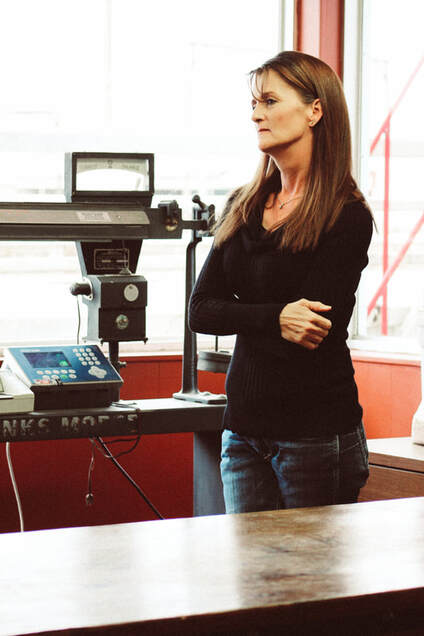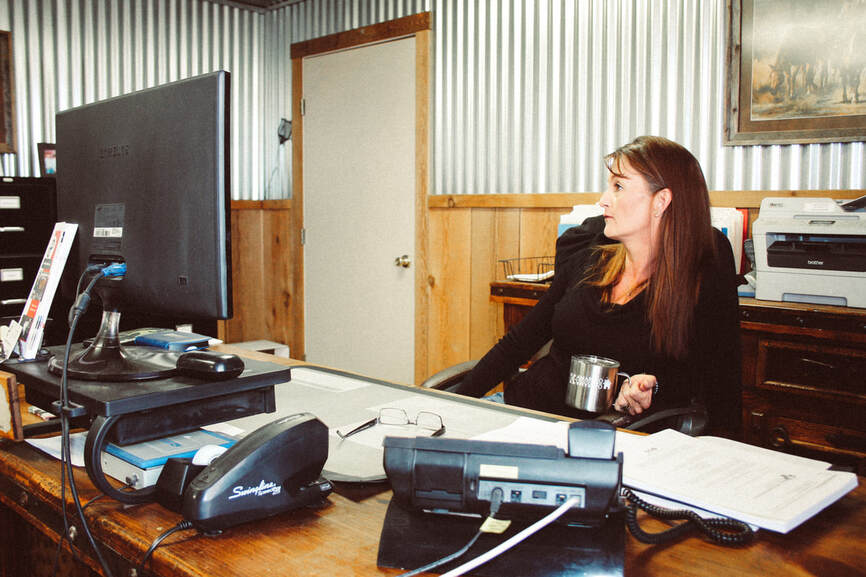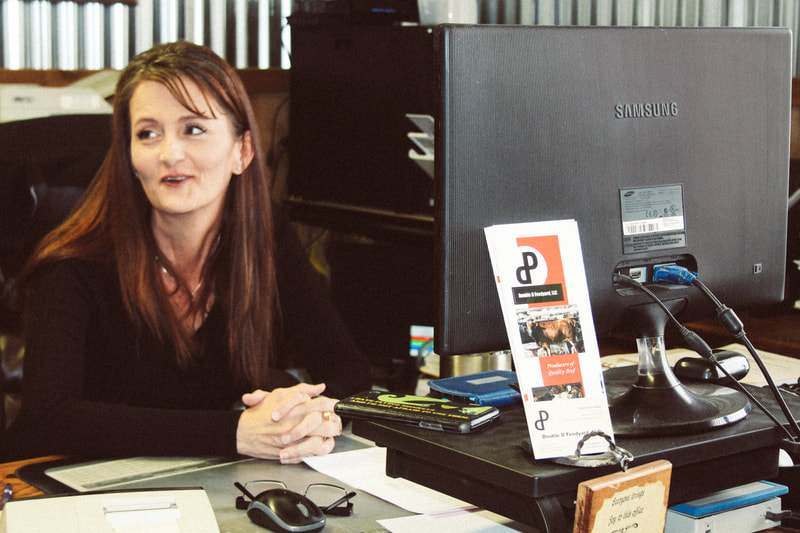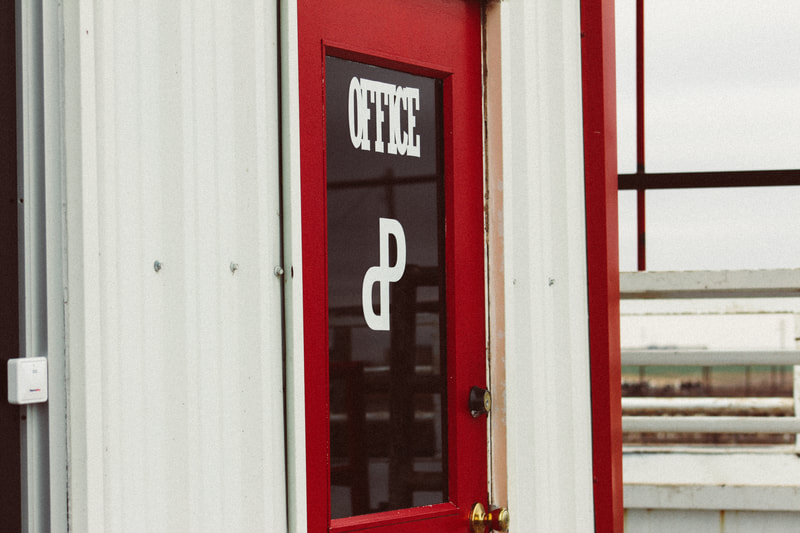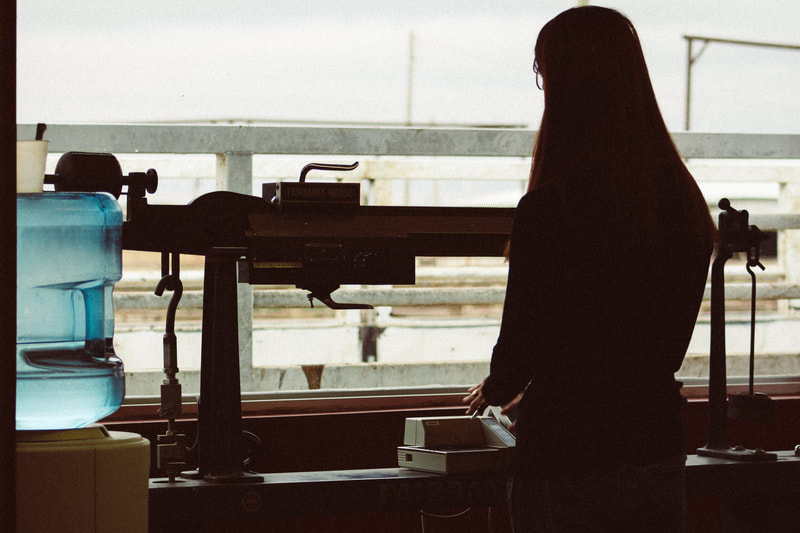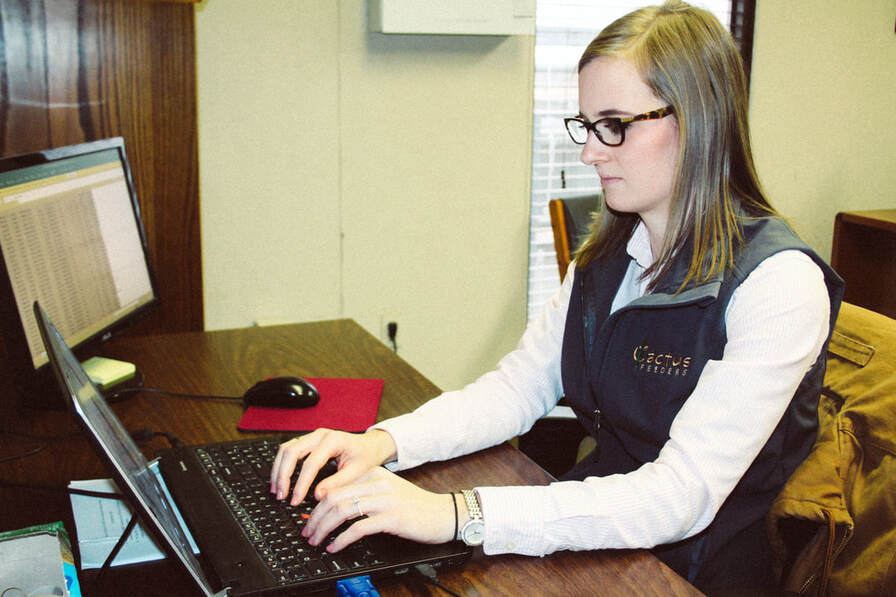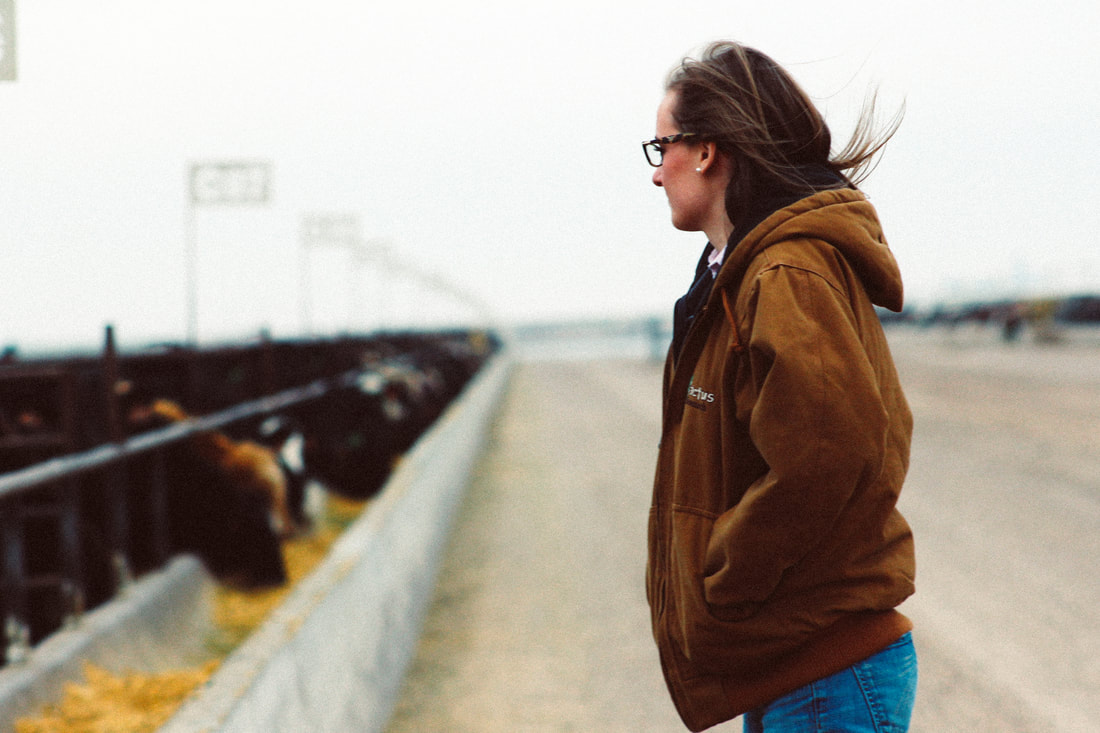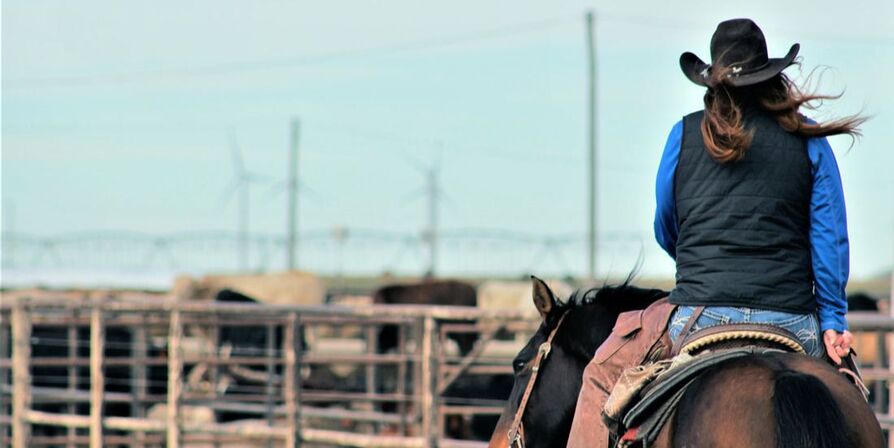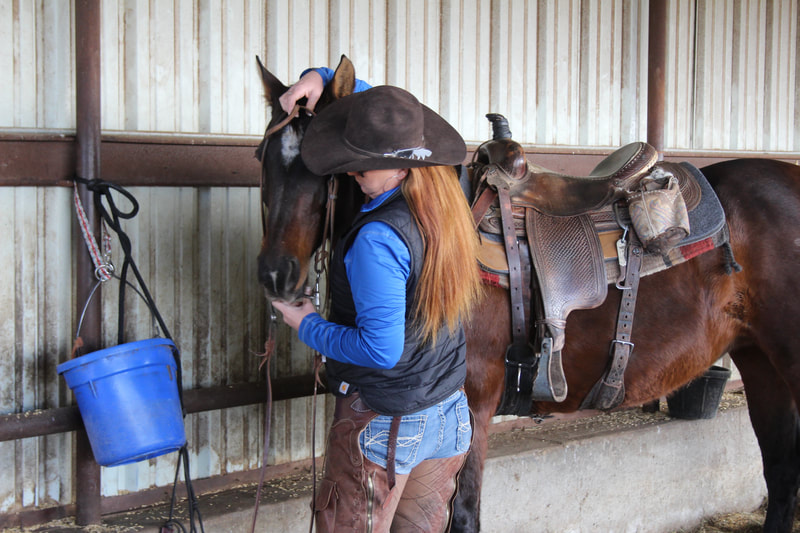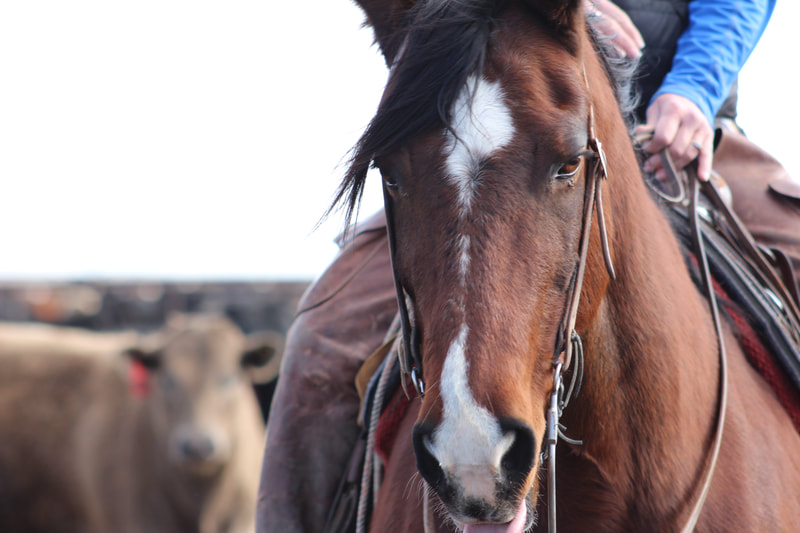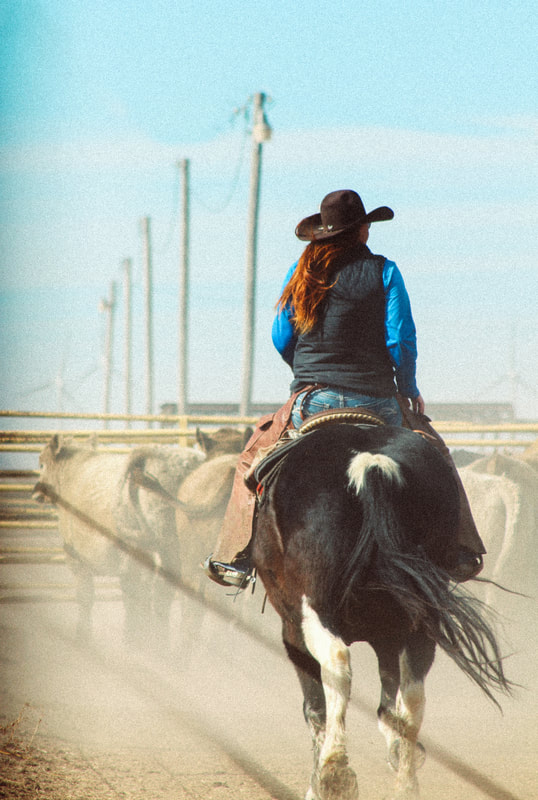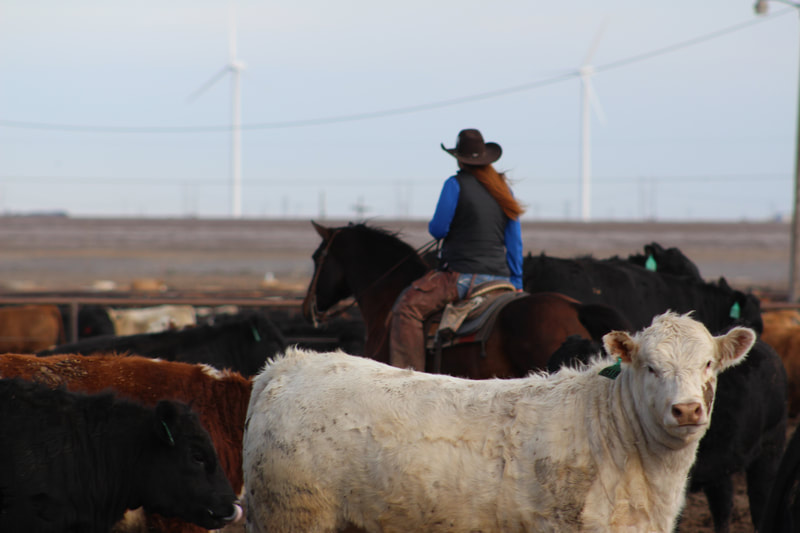|
Samantha Bell did not grow up in agriculture. She grew up in town, only a short distance from the Texas Cattle Feeders Association office in Amarillo. That’s fitting, considering she’s held just about every job in the cattle feeding business.
She’s been an office manager, a feedyard manager and prides herself on being able to do every job on the yard — both in case she’s ever needed, and to make sure others know she understands the role they play and challenges they face. But it wasn’t easy getting there. She recalls a time she didn’t know what she was doing. “I remember early on, when I first realized I wanted this to be a career and not just a paycheck, I was weighing trucks, commodity clerking and doing feed cards,” Bell says. “The cattle clerk came out and showed me a closeout, and it was probably the first time I'd ever seen one done. I pretended I knew exactly what was happening, but I really had no idea what any of it meant.” Bell asked if she could make a copy of the closeout, took it back to her desk and proceeded to break it down line by line. That’s when she realized how much she loved the numbers side of the business.
Today, Samantha serves as the Controller of Double D Feedyard in Dimmitt where she oversees every aspect of the company’s finances including payroll and accounting.
A woman’s work at a feedyard isn’t limited to just office jobs, Bell says. The fact that more women are serving in various roles within the industry makes her proud. “When I first started, there were hardly any women outside of office manager or administrative-type jobs,” she says. “Those roles are important, but today there are women riding pens, managing feedyards, doing just about every job on the payroll.”
She says the cattle feeding industry is a great place to work, and she would absolutely recommend it to other women, with the following advice:
“Know what you know and own it. Do not be afraid to voice it, but also don’t be afraid to admit a mistake,” she says. “Just be real, and work hard. The industry may not be the right fit for every woman, but it’s a great fit for some.” “If my daughter came up to me today and said, ‘Mom, show me the ropes,’ I would say, ‘Let's go!’” she adds. “Because it is kind of fun as a woman to say, ‘I can do that.’”
4 Comments
By: Katrina Huffstutler
Raised by parents who worked in information technology and education, Alyssa Word didn’t grow up with a strong connection to agriculture. That changed when she joined a friend at a 4-H steer show and became fascinated.
Fast forward a few years, and she was a biomedical science major at Texas A&M University. She always wanted to be a scientist, so it was a logical choice. The only problem? “It was not a very fun major,” Word says with a laugh. “I hated it.” Two years in, she transferred her scientific basics to an animal science degree and started taking production classes. She was hooked — and even more so after completing a research internship with Cactus Feeders.
“The cattle industry has the greatest people,” Word says. “That is a part of what drove me to want to work in this business. They are the kindest people and so willing to teach someone. I loved that from day one. I didn't grow up understanding how feedyards work, and so coming in and sitting down with a feedyard general manager and asking hard questions — even though it’s intimidating, seeing their kindness and their willingness to help as long as I’m willing to learn, has been remarkable.”
And learn she did. Today, Word serves as the research scientist for Cactus Feeders, the very place where she started her career. Word spends two days a week at Wrangler Feedyard, the research arm of Cactus Feeders. She manages the day-to-day processes that include data quality control, process execution and data analysis. She works alongside Ben Holland, director of research, on protocol development that helps the organization work more efficiently.
“Our mission at Cactus is to produce more food using fewer resources so that safe, quality beef is available to anyone who wants to consume it,” Word said. “Research helps us make informed decisions to best execute that mission.”
Her advice to others in her position? Be pointed with your questions (because cattle feeders are busy), but also be willing to sit down and ask questions. “Because,” Word says, “I think the more that the men in the industry get to see the women interested and excited about this industry, and that they want to learn and see proficiency in those areas, the more it becomes an everybody is working together thing instead of a here’s a woman in a male-dominated field thing.”
By: Katrina Huffstutler
Jayme Fankhouser doesn’t remember a time in her life before she was horseback. But unlike most little girls who learn to ride, she made a career out of it.
While no two days are the same for the pen rider, they always start early (she gets to work at 3:30 a.m. every Monday to prepare to ship cattle, closer to daylight the remaining days). By daylight, she’s riding the high-risk cattle, a responsibility she does not take lightly. “After the cattle leave my section, they will have been straightened out and ready for their new home,” she says. It’s an honor to look after the most fragile cattle in the yard, and even more impressive considering she’s one of very few females filling the role as pen rider. But she’s worked hard her whole career to be taken seriously, and never forgotten that the cattle come first.
Even when it was scary starting out, she refused to give up on her dream.
“My father told me a long time ago, ‘You work in a male world, you’re going to have to work twice as hard to be noticed,’” Fankhouser says. “So I’ve gone those extra miles and I guess maybe I’ve established myself to the point where others take me seriously.” She says intuition, coupled with a natural nurturing side, make women a great choice as cattle caretakers. But the work is not easy. “You have to have thick skin, and you can’t be afraid of hard work or the elements,” Fankhouser says.
Despite the challenges, she’s the first to encourage other women to go for their dreams, no matter how unconventional.
“Women aren’t limited in the industry. We can be as successful as we want,” says Fankhouser, whose daughter also rides pens. “Whatever you set your mind to, if that's what you want to do, you can go do it.” |
Categories
All
Archives
June 2024
|
About TCFA |
Get Involved |
|

